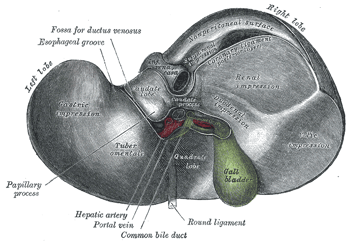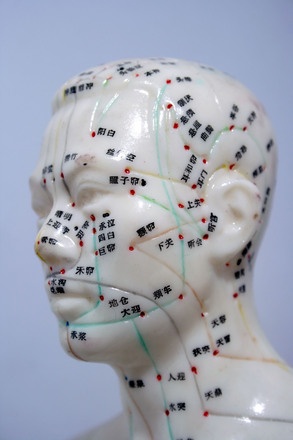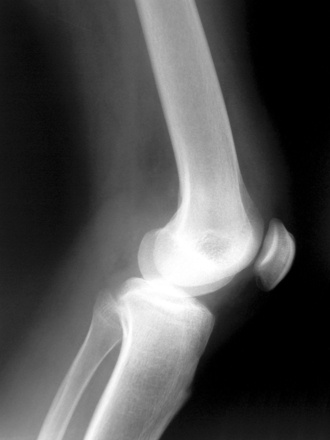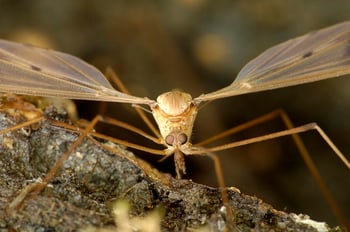 During pregnancy, much of a fetus’ development is contingent on the condition and function of the placenta. It is responsible for the transmission of substances from mother to child that are critical to early development, including blood, oxygen and nutrients, without which the fetus could not exist. Sometimes, however, environmental effects can cause deficiencies in the placenta, which can lead to harmful side effects such as preterm birth or even death.
During pregnancy, much of a fetus’ development is contingent on the condition and function of the placenta. It is responsible for the transmission of substances from mother to child that are critical to early development, including blood, oxygen and nutrients, without which the fetus could not exist. Sometimes, however, environmental effects can cause deficiencies in the placenta, which can lead to harmful side effects such as preterm birth or even death.
Tags: CA, University of California Los Angeles, Medical Research, California, Los Angeles, Development, UCLA, Biotechnology Vendor Showcase, NIH funding, NIH award, Southwest Region, 2016, best science tradeshows, pollution, pregnancy
 According to the Center for Disease Control (CDC), at least 1 in 9 American children is born prematurely. In addition to obvious concerns about low birth weight and developmental disabilities, premature infants also may be at risk for inhibited development due to the interplay of certain microbes in the gastrointestinal system.
According to the Center for Disease Control (CDC), at least 1 in 9 American children is born prematurely. In addition to obvious concerns about low birth weight and developmental disabilities, premature infants also may be at risk for inhibited development due to the interplay of certain microbes in the gastrointestinal system.
Tags: Pediatrics, FL, Florida, Tampa, Research Funding, NIH funding, Southern Region, 2016, Nursing, BioResearch Product Faire™, University of South Florida, USF
 The liver is a truly amazing organ, with an almost unprecedented ability to repair itself after injury. The mechanism for this ability was previously thought to be oval cells,but recent research from UCSD challenges conventional wisdom.
The liver is a truly amazing organ, with an almost unprecedented ability to repair itself after injury. The mechanism for this ability was previously thought to be oval cells,but recent research from UCSD challenges conventional wisdom.
Tags: CA, University of California San Diego, cancer research, California, School of Medicine, 2015, San Diego, SDVS, UCSD, Research Funding, NIH funding, Southwest Region, NIH grants, Biotechnology Vendor Showcase Event, 2016
 Researchers at the University of California, Irvine have recently found that people with hypertension can benefit from electroacupuncture – a form of acupuncture that uses electrical currents to stimulate various pressure points in the body.
Researchers at the University of California, Irvine have recently found that people with hypertension can benefit from electroacupuncture – a form of acupuncture that uses electrical currents to stimulate various pressure points in the body.
Tags: CA, Medical Research, University of California Irvine, California, 2015, Irvine, NIH funding, Southwest Region, UCI, pulmonary hypertension, UC Irvine, NIH grants, BioResearch Product Faire™, acupuncture
 Researchers from Washington State University are getting a leg up from the National Institutes of Health to continue their work with artificial hip and knee replacements.
Researchers from Washington State University are getting a leg up from the National Institutes of Health to continue their work with artificial hip and knee replacements.
Tags: Washington, WA, WSU, Nanoscience, Washington State University, 2015, Biomedical Engineering, Biomedical Reearch, Engineering, Research Funding, NIH funding, Northwest Region, Pullman, NIH grants, Nanomaterials, BioResearch Product Faire™
 West Nile Virus is a debilitating disease that is spread by the bite of an infected mosquito. Much like victims of malaria, and other mosquito-born pathogens, those affected by West Nile virus are at risk for serious illness or even death.
West Nile Virus is a debilitating disease that is spread by the bite of an infected mosquito. Much like victims of malaria, and other mosquito-born pathogens, those affected by West Nile virus are at risk for serious illness or even death.
Tags: Bioresearch, Oregon Health and Science University, vaccine research, infectious diseases, Oregon, 2015, disease research, Research Funding, NIH, OR, OHSU, Portland, NIH funding, Northwest Region, NIH grants, BioResearch Product Faire™
 Pancreatic cancer is one of the most rapidly spreading cancers known to man, which translates to seriously staggering death rates. According to the American Cancer Society, for all stages of pancreatic cancer combined, the one-year relative survival rate is 20%, and the five-year rate is 6%, in part because more than 80% of patient tumors have spread beyond the pancreas by the time of diagnosis. In most cases, the cancer has already spread to the point where surgical removal is impossible. (Image: Test Molecule; Los Angeles Mission College)
Pancreatic cancer is one of the most rapidly spreading cancers known to man, which translates to seriously staggering death rates. According to the American Cancer Society, for all stages of pancreatic cancer combined, the one-year relative survival rate is 20%, and the five-year rate is 6%, in part because more than 80% of patient tumors have spread beyond the pancreas by the time of diagnosis. In most cases, the cancer has already spread to the point where surgical removal is impossible. (Image: Test Molecule; Los Angeles Mission College)
Tags: Fred Hutchinson Cancer Research Center, Washington, cancer research, Cancer, 2015, BioResearch Product Faire Event, Seattle, NIH funding, Northwest Region, Hutch, cancer research funding
 Brain plasticity, or neuroplasticity, refers to the ability of the brain to react to the variety of changes that occur in the brain’s synapses or neural pathways over time. More specifically, plasticity involves changes that occur in the brain as a result of learning and experience, which is derived from emotions, behavior, thinking, and environment. As a person reaches adulthood, the brain loses plasticity and becomes more rigid in its layout and function. Loss of plasticity also commonly occurs in those affected with traumatic brain injuries or disease.
Brain plasticity, or neuroplasticity, refers to the ability of the brain to react to the variety of changes that occur in the brain’s synapses or neural pathways over time. More specifically, plasticity involves changes that occur in the brain as a result of learning and experience, which is derived from emotions, behavior, thinking, and environment. As a person reaches adulthood, the brain loses plasticity and becomes more rigid in its layout and function. Loss of plasticity also commonly occurs in those affected with traumatic brain injuries or disease.
Tags: CA, University of California Irvine, California, 2015, BioResearch Product Faire Event, Research Funding, Neurology, Irvine, NIH funding, UCI, UC Irvine, NIH grants, best lab supply tradeshows, best science tradeshows
 Researchers at Oregon Health & Science University’s Casey Eye Institute are taking a strike at the leading causes of blindness, thanks to over $3 million in funding from the National Institutes of Health.
Researchers at Oregon Health & Science University’s Casey Eye Institute are taking a strike at the leading causes of blindness, thanks to over $3 million in funding from the National Institutes of Health.
Tags: Bioresearch, Oregon Health and Science University, Northwest, Oregon, 2015, BioResearch Product Faire Event, Biotechnology, OR, Portland, NIH funding, research grants, NIH grants
 According to the Centers for Disease Control & Prevention, more than 2 million people a year in the U.S. acquire antibiotic-resistant blood infections which result in nearly 23,000 deaths. This is precisely why researchers at University of California, Irvine are going to receive a five-year, $5 million award from the National Institute of Allergy & Infectious Diseases (NIAID), for the development of a new biotechnology that detects infections in the bloodstream.
According to the Centers for Disease Control & Prevention, more than 2 million people a year in the U.S. acquire antibiotic-resistant blood infections which result in nearly 23,000 deaths. This is precisely why researchers at University of California, Irvine are going to receive a five-year, $5 million award from the National Institute of Allergy & Infectious Diseases (NIAID), for the development of a new biotechnology that detects infections in the bloodstream.
Tags: CA, University of California Irvine, infectious diseases, California, 2015, BioResearch Product Faire Event, Research Funding, Irvine, NIH funding, UCI, UC Irvine, research grants, best lab supply tradeshows, best science tradeshows

